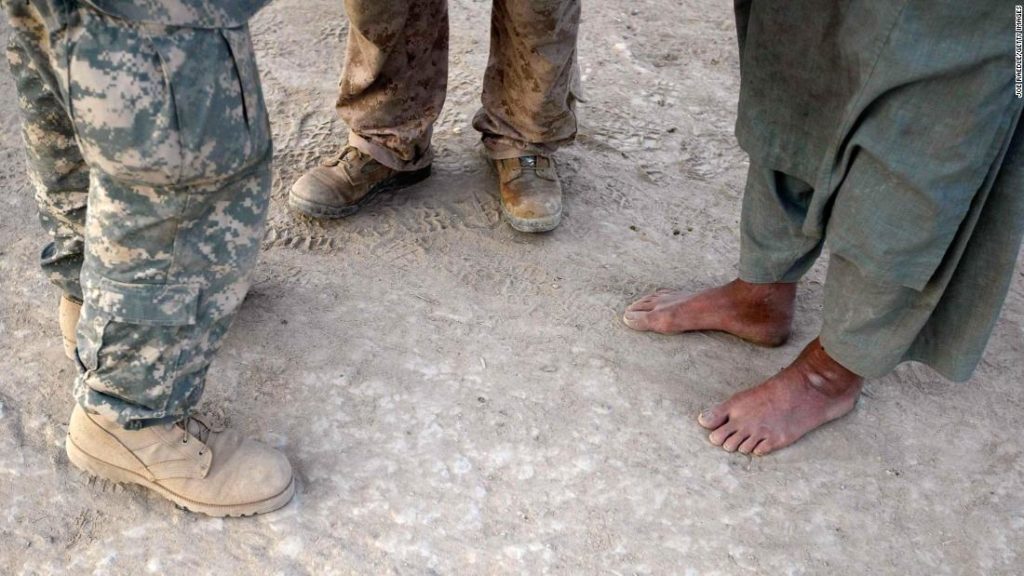Flights for Afghan special immigrant visa (SIV) applicants “who are already in the pipeline will begin in the last week of July,” according to a senior administration official.
“At President Biden’s direction, the United States is launching Operation Allies Refuge to support relocation flights for interested and eligible Afghan nationals and their families who have supported the United States and our partners in Afghanistan and are in the SIV application pipeline,” the official said.
The administration said it would not have additional details about the timing or destination of the flights for operational security.
However, a US official with direct knowledge of current discussions says the US is exploring the possibility of granting Afghans humanitarian parole, which would allow them to enter the US temporarily, and that they may be relocated “in the US at potential military installation locations.” The official called this scenario “likely” but also said overseas locations are not ruled out as well, emphasizing that a final decision on the issue has yet to be made.
News of “Operation Allies Refuge” was first reported by Reuters.
Amb. Tracey Jacobson, who served as US ambassador to Tajikistan, Turkmenistan, and Kosovo, “is leading the State Department Coordination Unit that will deliver on the President’s commitment under Operation Allies Refuge,” the senior administration official said, noting the task force will include representatives from the Defense Department and Department of Homeland Security.
Russ Travers, a senior adviser at the National Security Council, will coordinate the interagency policy process on the operation.
The administration has faced criticism from bipartisan lawmakers and advocates for not doing enough to protect the Afghans who helped the US and now fear their lives are in danger as the Taliban gains ground and the US nears full withdrawal from Afghanistan.
President Joe Biden announced last week that the military drawdown from Afghanistan would be finished by the end of August, and US Central Command said Tuesday the US had completed “more than 95% of the entire withdrawal process.”
In his remarks, the President vowed “to make sure that we take on the Afghan nationals who work side-by-side with US forces, including interpreters and translators.”
“Our message to those women and men is clear: There is a home for you in the United States if you so choose, and we will stand with you just as you stood with us,” he said.
The State Department has said that there are 18,000 SIV applicants in the pipeline, and the administration had previously suggested it would focus on the 9,000 in the later stages of the application process.
‘Offer to relocate’
“We have identified a group of SIV applicants — that is to say, individuals who were already somewhere in that SIV processing chain — whom at the right time before the military withdrawal is complete later this year, relocate or at least offer to relocate to a third country as they go through their SIV application processing. We have been in conversations, diplomatic discussions with a number of countries around the world,” State Department spokesperson Ned Price said Monday.
Homeland security adviser Elizabeth Sherwood-Randall is leading a high-level delegation to Uzbekistan this week, the NSC announced Wednesday, where she will join with US Special Representative for Afghanistan Reconciliation Zalmay Khalilzad for discussions with leaders of Afghanistan and regional countries on “how to promote peace, security, and development in Afghanistan, and advance shared regional security interests, including counterterrorism cooperation.”
The US is also looking at the possibility of relocating the applicants to US territories or military installations in other countries, Pentagon spokesperson John Kirby said in a briefing last week.
Advocates and lawmakers have pressed the administration for more concrete details about their plans to save the Afghans and their families amid what the former top US military commander in Afghanistan said was a concerning pace of Taliban gains on ground.
“Today’s announcement is a vital step forward in honoring the promise we made to Afghan allies who faithfully served our mission. The danger that they and their families face as a result of their service cannot be overstated. We are eager to see this long-overdue evacuation operationalized in a meaningful way,” said Krish O’Mara Vignarajah, president and CEO of Lutheran Immigration and Refugee Service.
“Unfortunately, there are still far too many questions left unanswered, including who exactly and how many people are eligible for evacuation. With partners estimating that 49% of those at risk reside outside of Kabul, how will those outside the capital access safety? And to what countries will they be evacuated? We have serious concerns about the protection of our allies’ human rights in countries that have been rumored as potential partners in this effort,” she said in a statement.
One organization that works to help Afghan translators and their families settle in the US is taking matters into its own hands, raising over $1 million to purchase airfare for the 1,250 Afghans who have already received visas and are part of the group that Biden said last week had not yet flown to the US.
James Miervaldis, the chairman of “No One Left Behind,” explained to CNN that the details are still being figured out, but flights could begin as soon as next week.
CORRECTION: This story has been corrected to accurately reflect the name of “Operation Allies Refuge”
CNN’s Barbara Starr, John Harwood, Kylie Atwood, Nicole Gaouette and Oren Liebermann contributed to this report.
You may also like
-
Afghanistan: Civilian casualties hit record high amid US withdrawal, UN says
-
How Taiwan is trying to defend against a cyber ‘World War III’
-
Pandemic travel news this week: Quarantine escapes and airplane disguises
-
Why would anyone trust Brexit Britain again?
-
Black fungus: A second crisis is killing survivors of India’s worst Covid wave

